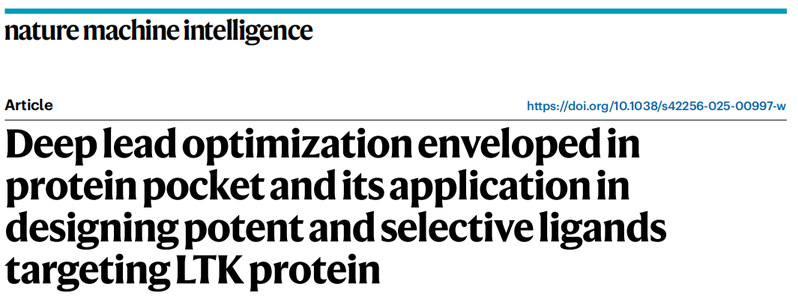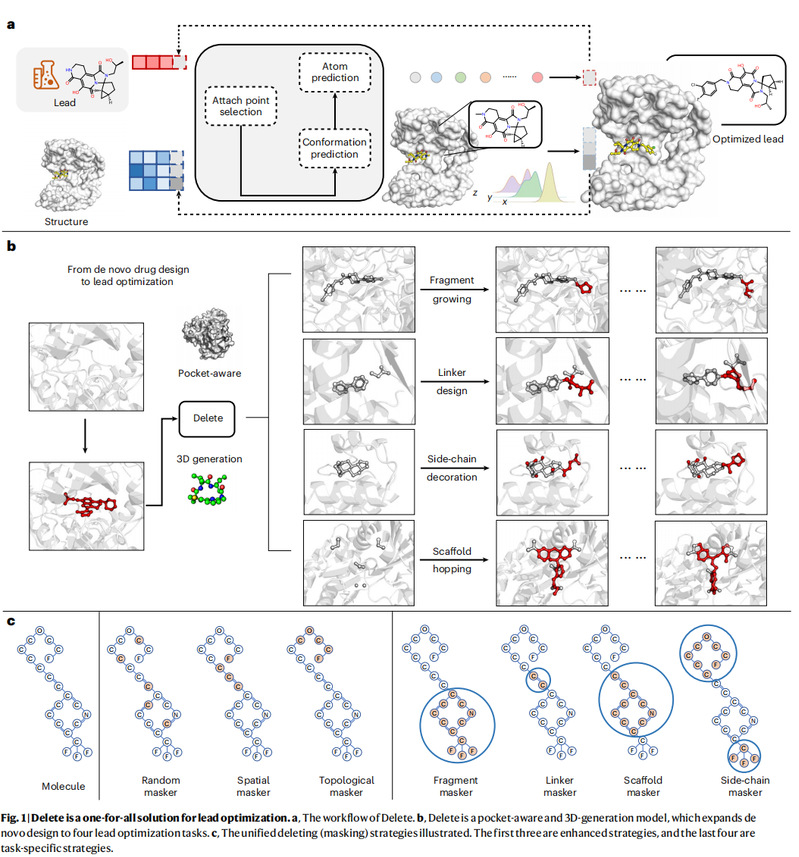Nature Machine Intelligence by the team of College of Pharmaceutical Sciences, Zhejiang University: Deep learning-based lead compound optimization model facilitates drug discovery
2025-02-22 | 药学院英文网
Lead compound optimization is an important step in drug discovery, where structural modifications are made in order to increase molecular activity, reduce toxicity, and improve druggability. In the field of AI-assisted drug discovery (AIDD), computational methods designed specifically for lead compound optimization remain underexplored compared to the widely studied ab initio generation methods. Existing models are usually optimized only for 2D structure generation or specific subtasks (e.g., linker design or side-chain modification), ignoring the critical information of 3D protein-ligand interactions, and it is difficult to integrate multi-task optimization capabilities within a single framework, which limits the efficiency of their practical application.

In February 2025, the team of Peichen Pan, Tingjun Hou, Yu Kang and Changyu Xie from Zhejiang University, together with the team of Yong Huang from the Hong Kong University of Science and Technology, published the paper “Deep lead optimization enveloped in protein pocket and its application in designing potent and selective ligands targeting LTK protein” in Nature Machine Intelligence. The study proposes a deep learning-based lead optimization model, Delete (Deep Lead Optimization Enveloped in Protein Pocket), which combines generative AI and structure-based molecular design strategies to achieve all lead optimization sub-tasks, such as linker design, fragment substitution, backbone jump and side chain modification, for the first time. The research team applied Delete to the molecular design of the The research team applied Delete to CLIP1-LTK, a novel oncogenic target of NSCLC, and successfully designed a nanomolar active molecule (IC50=1.36nM), whose selectivity and anti-tumor mechanism have been verified by in vitro and in vivo experiments. This work represents a successful implementation of protein structure-based generative AI and presents an efficient lead compound optimization model Delete, which is expected to provide an efficient, precise and reliable optimization tool for the field of molecular design and drug development.

Figure 1. Delete is a one-for-all solution for lead optimization.
The College of Pharmaceutical Sciences, Zhejiang University was the first author unit of the paper, and PhD students Shicheng Chen, Haotian Zhang, Huifeng Zhao and postdoctoral fellow Xujun Zhang were the co-first authors, while researcher Peichen Pan, Prof. Tingjun Hou, Associate Prof. Yu Kang, Prof. Changyu Xie of Zhejiang University, and Prof. Yong Huang of Hong Kong University of Science and Technology were the co-corresponding authors.
Original link:https://www.nature.com/articles/s42256-025-00997-w
NEWS
-
10
2025.12
-
27
2025.11
-
25
2025.11
-
03
2025.11
-
30
2025.10
-
29
2025.10
